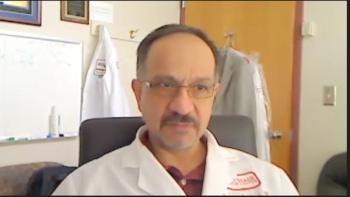
In an interview with CancerNetwork®, Hossein Borghaei, DO, MS, details the promising body of ongoing research assessing biomarkers in patients with non–small cell lung cancer who are candidates for treatment with immunotherapy.

Your AI-Trained Oncology Knowledge Connection!


In an interview with CancerNetwork®, Hossein Borghaei, DO, MS, details the promising body of ongoing research assessing biomarkers in patients with non–small cell lung cancer who are candidates for treatment with immunotherapy.

Alexis A. Thompson, MD, MPH, reviewed the unmet needs of patients with β-thalassemia who will receive betibeglogene autotemcel.
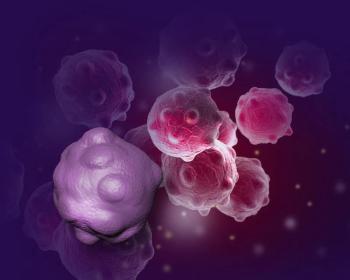
Aditya Bardia, MD, MPH, discussed final results from the phase 3 ASCENT study evaluating sacituzumab govitecan vs physician’s choice of single-agent chemotherapy for patients with relapsed or refractory metastatic triple-negative breast cancer.

Pemigatinib had been approved by the FDA as a treatment for patients with FGFR1 rearranged relapsed/refractory myeloid/lymphoid neoplasms.

In light of the recent FDA approval of darolutamide plus docetaxel and androgen deprivation therapy in metastatic hormone-sensitive prostate cancer, E. David Crawford, MD, discussed the research that paved the way for the regulatory decision and where future efforts need to be focused.
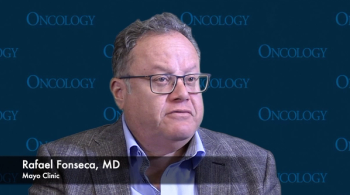
Rafael Fonseca, MD, spoke about how bispecific antibodies like elranatamab have the potential to change the treatment paradigm for patients with relapsed/refractory multiple myeloma.

Long-term follow-up data of abivertinib for patients with EGFR T70M–mutated advanced non–small cell lung cancer highlighted promising responses.

Investigators stated that comprehending the quality of life reduction associated with MRI with or without mammography for patients with ductal carcinoma in situ may help to improve patient experience and help in the development of targeted strategies.

Patients with BRAF V600–mutated melanoma with central nervous system metastases had positive intracranial activity following treatment with atezolizumab, vemurafenib, and cobimetinib.
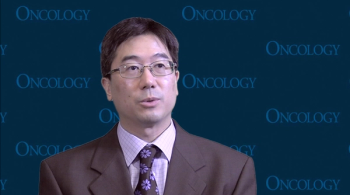
Phillip H. Kuo, MD, PhD, spoke about the use of theragnostic treatment and imaging for patients with metastatic castration-resistant prostate cancer.

Based on results of the phase 1/2 iMAGINE trial, the FDA has approved ibrutinib for pediatric patients with chronic graft-versus-host disease.

The European Commission has announced the first global approval of teclistamab for previously treated relapsed/refractory multiple myeloma following its conditional marketing authorization.

In a population of patients with recurrent mismatch repair proficient endometrial cancer, treatment with avelumab and talazoparib appeared to be well tolerated.

Health Canada approved nivolumab in combination with platinum-doublet chemotherapy for the neoadjuvant treatment of patients with resectable non–small cell lung cancer prior to surgery.

Adult patients with acute myeloid leukemia who are not eligible for treatment with standard induction chemotherapy may benefit from treatment with decitabine and cedazuridine, the marketing authorization application for which was accepted by the European Medicines Agency.
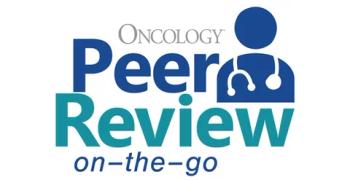
Robert Stuver, MD, and Zachary D. Epstein-Peterson, MD, spoke with CancerNetwork® about a review article on the treatment of peripheral T-cell lymphoma published in the journal ONCOLOGY®.

Early findings indicate that CLN-081 may hold promise in patients with advanced EGFR exon 20 insertion mutation–positive non–small cell lung cancer.

Results from a multicenter study showed similar median overall survival results with laser interstitial thermal therapy compared with other tumor resection studies that used radiation and chemotherapy followed by laser ablation in patients with IDH wild-type glioblastoma.
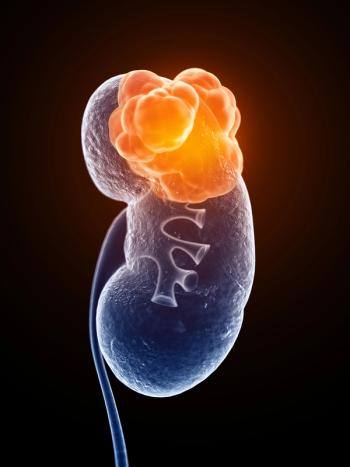
Patients with clear cell renal cell carcinoma may experience successfully downstaging of venous tumor thrombus extent with neoadjuvant axitinib.
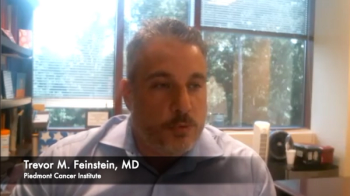
Trevor M. Feinstein, MD, spoke about how quality of life was improved for patients with EGFR wild-type stage IIIB/IV non–small cell lung cancer receiving plinabulin in addition to docetaxel the phase 3 DUBLIN-3 trial.
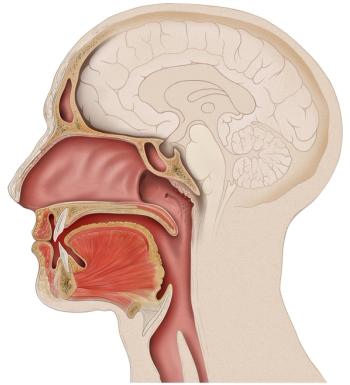
A long-term data readout from the phase 3 IT-MATTERS trial highlighted the potential of leukocyte interleukin injection as a treatment for patients with locally advanced primary squamous cell carcinoma of the head and neck, oral cavity, and soft palate.
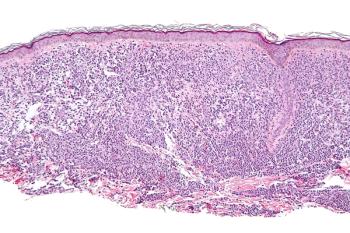
Primary and secondary end points from the phase 2 PIONEER trial assessing avapritinib in nonadvanced systemic mastocytosis were met.

Trevor M. Feinstein, MD, discussed the phase 3 DUBLIN-3 trial evaluating docetaxel with or without plinabulin for patients with EGFR wild-type stage IIIB/IV non–small cell lung cancer.
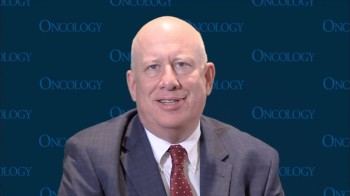
Alexander I. Spira, MD, PhD, FACP, highlights several unanswered questions within the KRAS G12C–positive non–small cell lung cancer space.
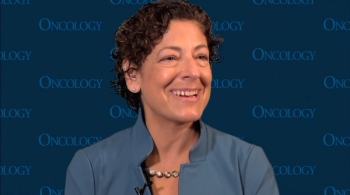
Angela DeMichele, MD, MSCE, spoke about the I-SPY2 trial, which evaluates patients with early breast cancer who are treated with experimental neoadjuvant systemic therapy regimens.

In an update to the phase 3 CANOPY-A trial, investigators reported that canakinumab did not significantly improve disease-free survival over placebo in patients with completely resected non–small cell lung cancer.

Alexis A. Thompson, MD, MPH, reviewed unmet needs for patients with β-thalassemia who may now receive betibeglogene autotemcel.
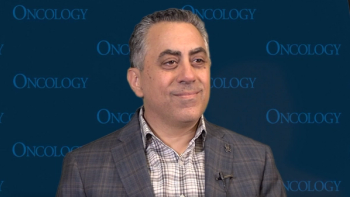
Data from the phase 2 DYNAMIC trial show that a circulating tumor DNA–guided approach to adjuvant therapy selection may be feasible for patients with stage II colorectal cancer, but Tanios S. Bekaii-Saab, MD, is skeptical about its readiness for prime time.

A real-world, prospective cohort study identified independent predictors may increase the risk of early mortality in patients with newly diagnosed multiple myeloma.

In a population of patients with cervical intraepithelial neoplasia and stage IA1 cervical cancer, certain local treatments, such as radical excision and ablation, were associated with treatment outcomes and risk of preterm birth.